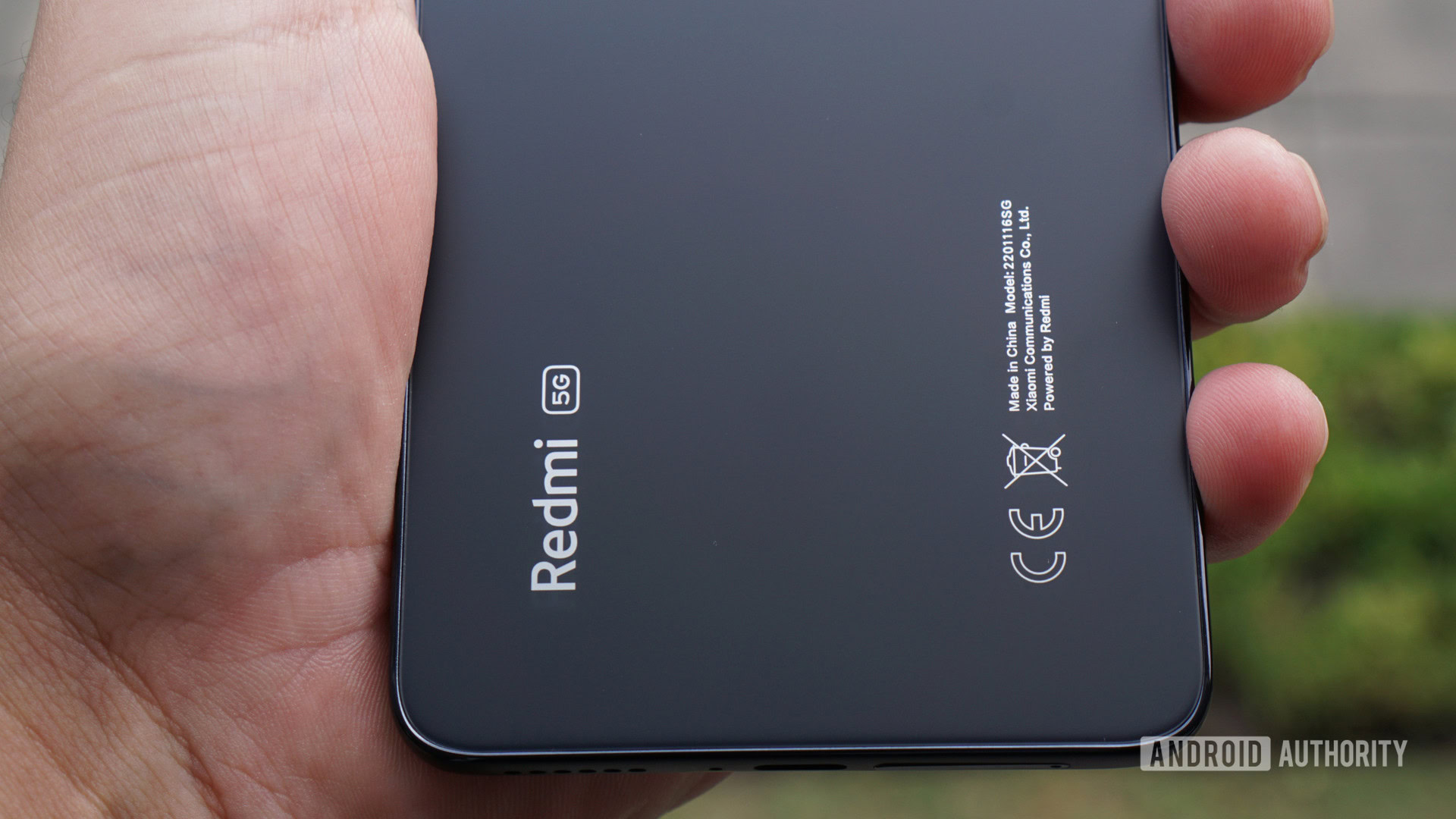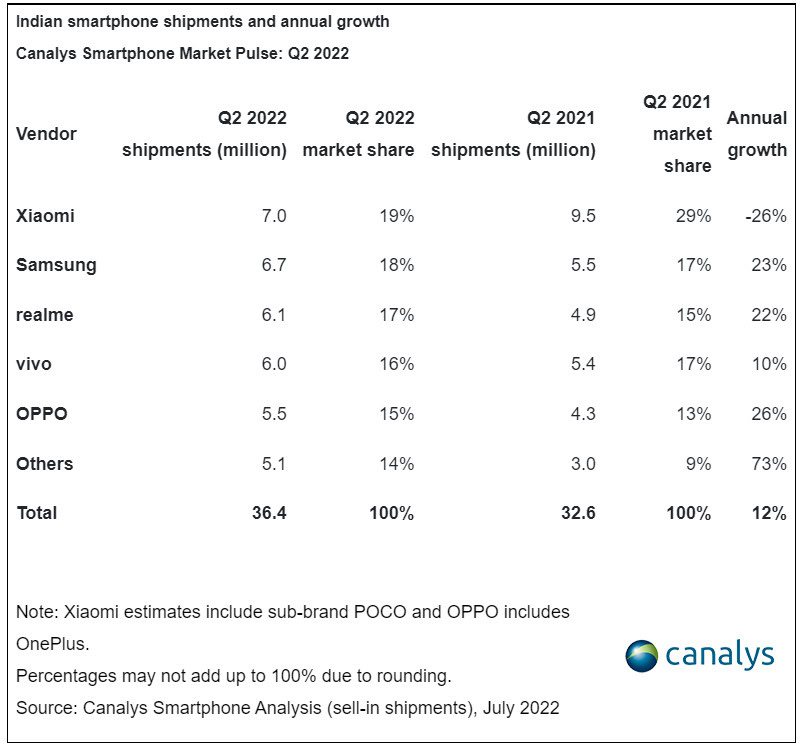Affiliate links on Android Authority may earn us a commission. Learn more.
It looks like a 5-way fight for the lead in India's smartphone market

- Xiaomi has maintained its top spot in India for Q2 2022, according to a new market report.
- It was the only brand to see a yearly decline though, with the other top five brands all seeing major growth.
- The top five manufacturers are separated by just 4% in the region.
The Indian smartphone market is arguably the most competitive in the world, but Xiaomi has been the top player for a few years now. However, a new market share report has revealed that Xiaomi could be under threat from four brands.
Canalys has revealed its Q2 2022 market share report for India, and Xiaomi is indeed at the top of the pile with a 19% share of the market. In saying so, this figure represents a 26% yearly decline compared to the Covid-hit Q2 2021.
Xiaomi was the only major player in the top five to record a yearly decline though. Second-placed Samsung delivered an 18% share (23% year-on-year growth) and third-placed realme delivered 17% market share (22% growth). vivo (16% share) and OPPO (15%) rounded out the top five with year-on-year growth of 10% and 26% respectively.
Do you think Xiaomi will keep the top spot in India?
In other words, the top five players in India are separated by just 4% market share. The big question is whether Xiaomi will be able to recover its performance and hang on to the top spot in India. Otherwise, there are four players waiting in the wings who all have a shot at number one, with Samsung only missing out on the top spot by ~300,000 units.
As for the market as a whole, Canalys reports that 36.4 million smartphones were shipped in India during Q2 2022. This represents a 5% sequential drop over the previous quarter but a 12% increase over the Covid-affected Q2 2021.
